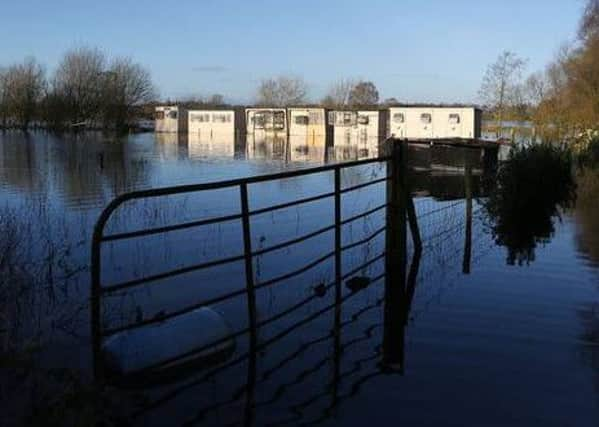Lough Neagh flood management '˜hampered by unreliable weather forecasts'


The chief executive of the Rivers Agency, David Porter, told a Stormont committee the combination of “pretty shaky” forecasts and the fact it can take almost 40 days to lower the lough by a foot left him facing an on-going dilemma.
Some of the worst flooding in Northern Ireland over the festive period was witnessed around the shores of Lough Neagh and its tributaries.
Advertisement
Advertisement
While sluice gates that drain the lough had been fully opened since November, the Rivers Agency has faced criticism for not doing more to drop the level of the lough ahead of winter storms.
Giving evidence to the Regional Development Committee in Parliament Buildings, Belfast, Mr Porter explained the problem facing his organisation.
“Our difficulty is in the level of confidence we have in our weather forecasts,” he said.
“So we get very good information on a three-day basis, we might place some emphasis or some credence on a five-day weather forecast, but after that our level of confidence greatly diminishes.”
Advertisement
Advertisement
Mr Porter said once the level of the lough is dropped the agency cannot take any action to reverse the situation.
“If you draw down the lough excessively in anticipation of weather and you don’t get it, then you are sitting with a (low level) lough and there’s no way you can actually reverse that situation,” he said.
“In order to draw it down by 300 millimetres we need to release 165 million tonnes of water. In order to do that, on top of what we would be doing in our normal day to day flow, we need between 25 and 38 days.
“That is the nub of the problem. In order to reduce it by a foot we need between 25 to 38 days notice to do it and after about five days our level of confidence in the weather forecast is pretty shaky.
Advertisement
Advertisement
“So hopefully that describes the dilemma we are in. We can’t anticipate to the extent that people believe we can.
“That’s why the levels are set to try and minimise. You try to draw down to the lower level during the winter so we have a little bit of a buffer, but it’s inevitable when we get heavy rain and rain storms like we experienced that we have more in-flow than we could ever possibly deal with, and the only thing that happens then is the lough rises and spills out across land.”